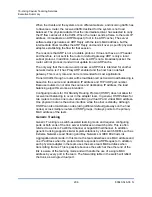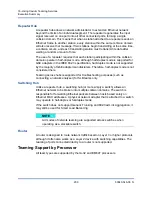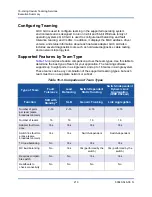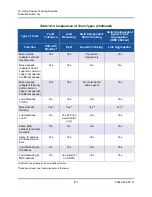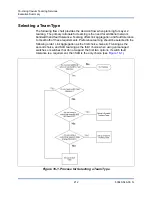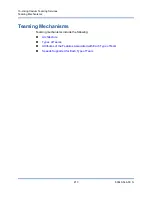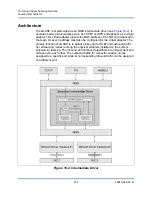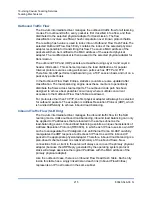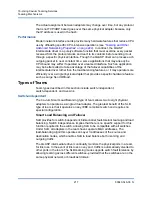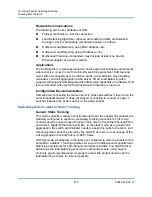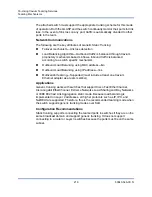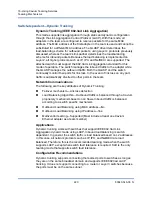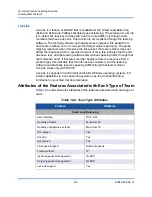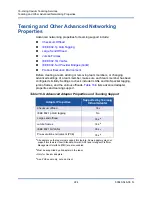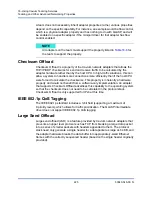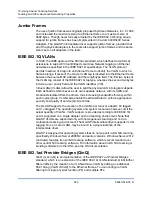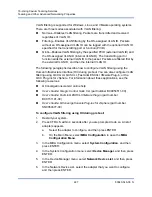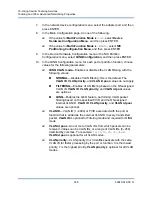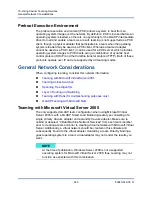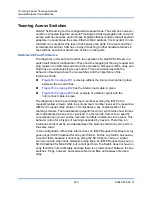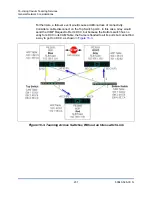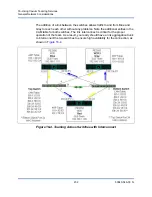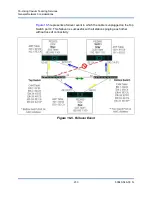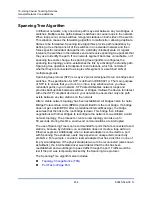
16–Using Cavium Teaming Services
Teaming Mechanisms
219
83840-546-00 N
The attached switch must support the appropriate trunking scheme for this mode
of operation. Both the QLASP and the switch continually monitor their ports for link
loss. In the event of link loss on any port, traffic is automatically diverted to other
ports in the team.
Network Communications
The following are the key attributes of Generic Static Trunking:
Failover mechanism—Link loss detection
Load Balancing Algorithm—Outbound traffic is balanced through Cavium
proprietary mechanism based L4 flows. Inbound traffic is balanced
according to a switch specific mechanism.
Outbound Load Balancing using MAC address—No
Outbound Load Balancing using IP address—Yes
Multivendor teaming—Supported (must include at least one Cavium
Ethernet adapter as a team member)
Applications
Generic trunking works with switches that support Cisco Fast EtherChannel,
Cisco Gigabit EtherChannel, Extreme Networks Load Sharing and Bay Networks
or IEEE 802.3ad Link Aggregation static mode. Because load balancing is
implemented on Layer 2 addresses, all higher protocols such as IP, IPX, and
NetBEUI are supported. Therefore, this is the recommended teaming mode when
the switch supports generic trunking modes over SLB.
Configuration Recommendations
Static trunking supports connecting the teamed ports to switches if they are on the
same broadcast domain and support generic trunking. It does not support
connecting to a router or Layer 3 switches because the ports must be on the same
subnet.


